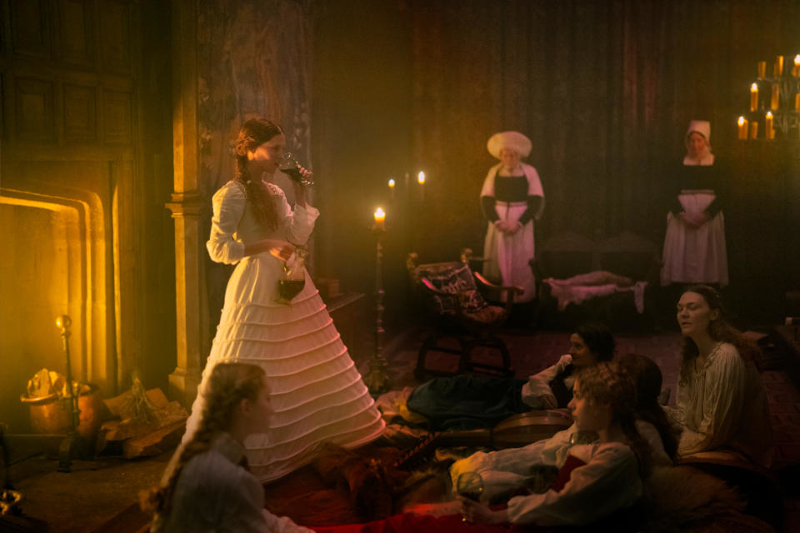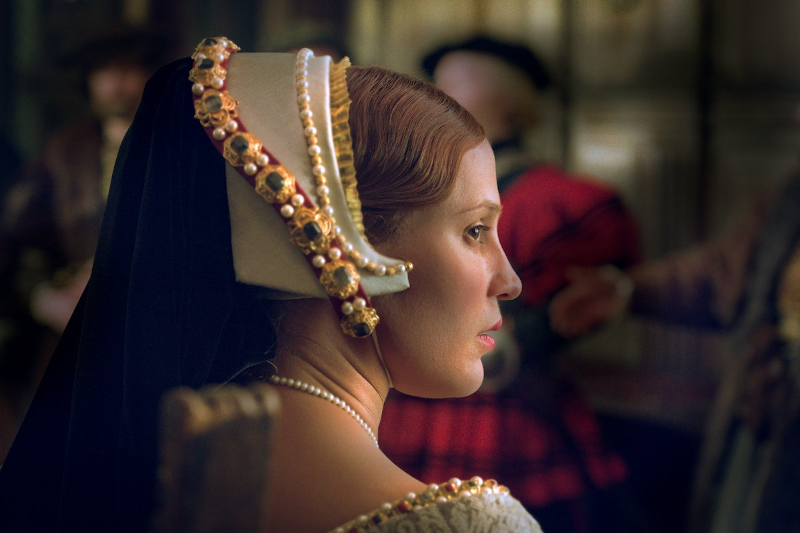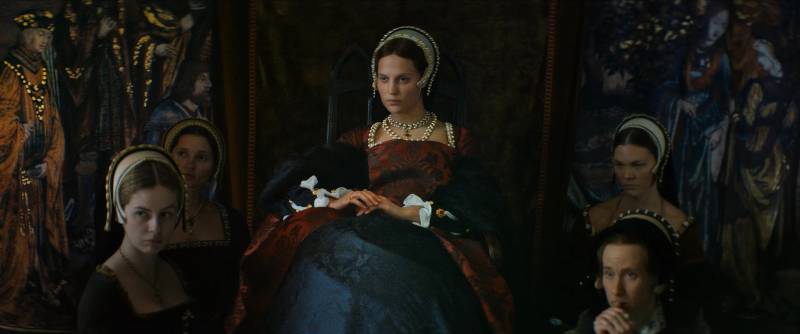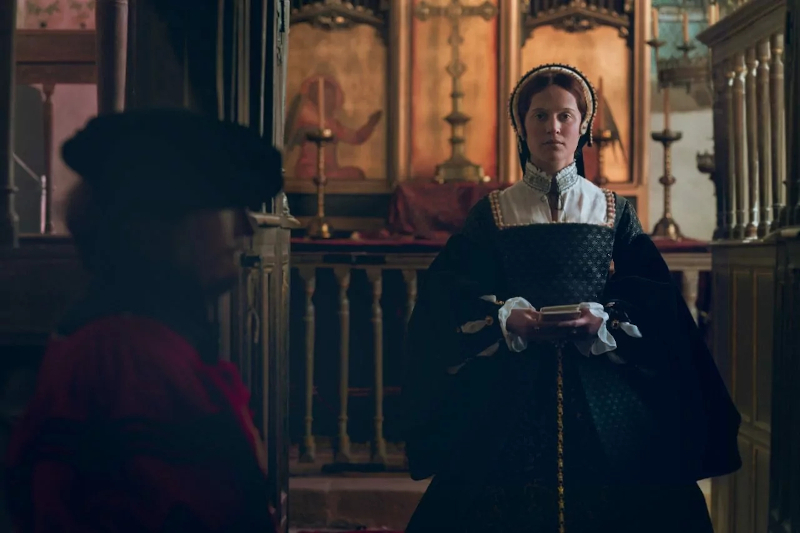Director – Karim Ainouz – 2023 – UK – Cert. 15 – 121m
*****
Henry VIII’s sixth wife Katherine Parr must navigate the increasingly treacherous waters between her desire for religious tolerance and Henry’s more authoritarian take on Christianity – out in UK cinemas on Friday, September 6th
With her husband Henry VIII away fighting wars abroad, the Queen – Henry’s sixth wife Katherine Parr (Alicia Vikander) – has been declared Regent. Yet, for all the power, at least temporarily, entrusted to her, she cannot go anywhere outside the castle without male guards. On the pretext of visiting a religious shrine to which only women can be admitted, she (and her loyal ladies in waiting) slip off to a forest glade where her old friend Anne Askew (Erin Doherty) is preaching on the fact that the Bible has recently been translated into English and therefore made available to the common people in their own language for the present time. “Where will it all end?”, Anne asks her small, gathered audience.
Where indeed? Katherine may be a reformer at heart, but she is also staunchly royalist and believes in the King both as an institution and Henry himself specifically.

And then Henry (Jude Law) comes back from the wars, bringing her time as Regent to an end. The reason for his return is medical. He has problems with his legs and can no longer mount a horse. Indeed, he is regularly attended by a doctor, but on occasion has the queen tend to his legs rather than the physician’s male assistants. We see her gently putting what appear to be maggots into his wounds, as per the medical wisdom of the day, and it all looks pretty unpleasant.
Henry, you may remember from history, was driven by the desire for a male heir. He already has one son, the sickly Edward (Patrick Buckley), who will later die in his mid-teens (well after the narrative of this film ends), whose mother, third wife Jane Seymour, died in childbirth. We don’t see her here, but we do see her brothers Thomas (Sam Riley) and Edward (Eddie Marsan) at court.
Both are in the Reformers’ camp, although the scheming Edward is far more interested in ensuring his nephew’s ascendency to the throne in due course than in any religious agenda. Thomas is the lover that Katherine, faithful to husband Henry, has never had, although there is undeniable chemistry between the two of them when they are in close proximity, and Henry, in his less charitable, most misogynist moments, suggests to Katherine that she may have been unfaithful to him with Thomas.

There are sex scenes, and they are brutal: the King going at it and the Queen lying back and taking it in a not particularly pleasant way. Katherine gets pregnant with a son, as per both their wishes, but following a scene where Henry beats her around in their chambers, throws her to the ground and, effectively, rapes her, she miscarries.
While she is carrying a son and heir, she has some sort of security; once that is past, she is considerably more vulnerable.
On her visit to Anne Askew, early on, Katherine gave her a jewel to help finance her, and this gift threatens to come back to bite the Queen when conservative Archbishop Stephen Gardiner (the deceptively gentle-spoken Simon Russell-Beale) starts looking for something to pin on her, since he regards her reforming zeal and free thinking as a threat to the established Christian faith that underpins the monarchy and the stability of the kingdom. He has Anne tortured and burned early on (an event reported, rather than shown) and regards her as misguided, but impressive. He may have the best of motives, but his outworkings of them are horrific.

It would have been easy to up the medical gore and the graphic content of the sex scenes, but the film doesn’t take that route. Whether such elements would have added much of value to the film is questionable; it certainly doesn’t pull any punches in terms of the underlying issues involved. That’s a very difficult state of balance to pull off, and it’s to the great credit of all concerned with the production that it manages to maintain that balance so well.
The whole is told in an occasional, intermittent voice-over from his daughter Elizabeth (Junia Rees), here portrayed as a young woman who regards Katherine as the only real mother she’s ever had. Henry, in Jude Law’s powerful turn, is a highly articulate monster and wife-abuser, seeing himself as synonymous with the realm and God’s representative entrusted with its well-being. This is not a prettified period costume drama – although art direction and costumes are well up to par – it’s something much more powerful with a great deal to say about the English monarchy and the history of Western Christianity, and, indeed, the wider British idea of religious tolerance. Essential viewing.
Firebrand is out in cinemas in the UK on Friday, September 6th.
[Read my shorter review for Reform magazine.]
Trailer:
